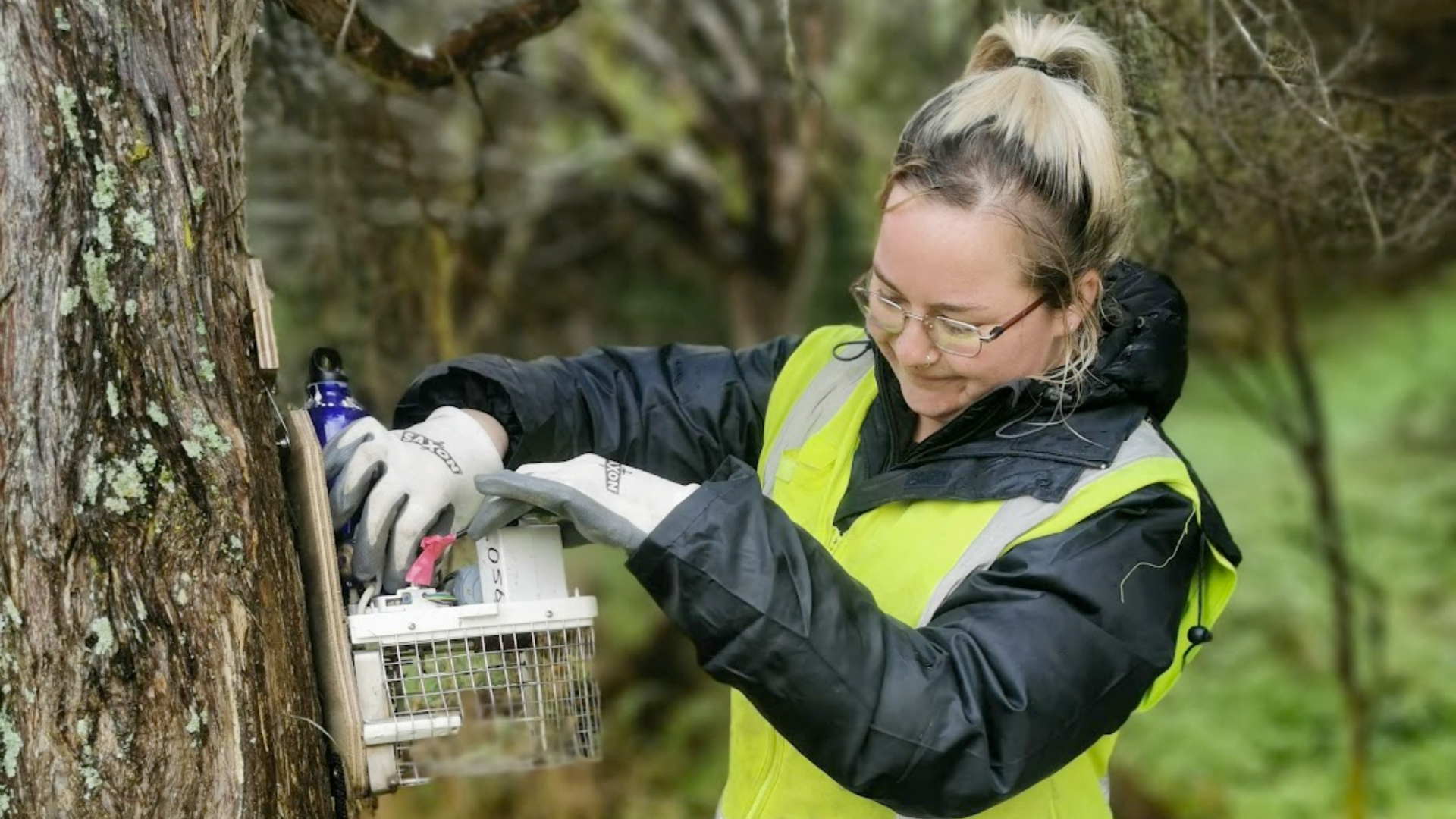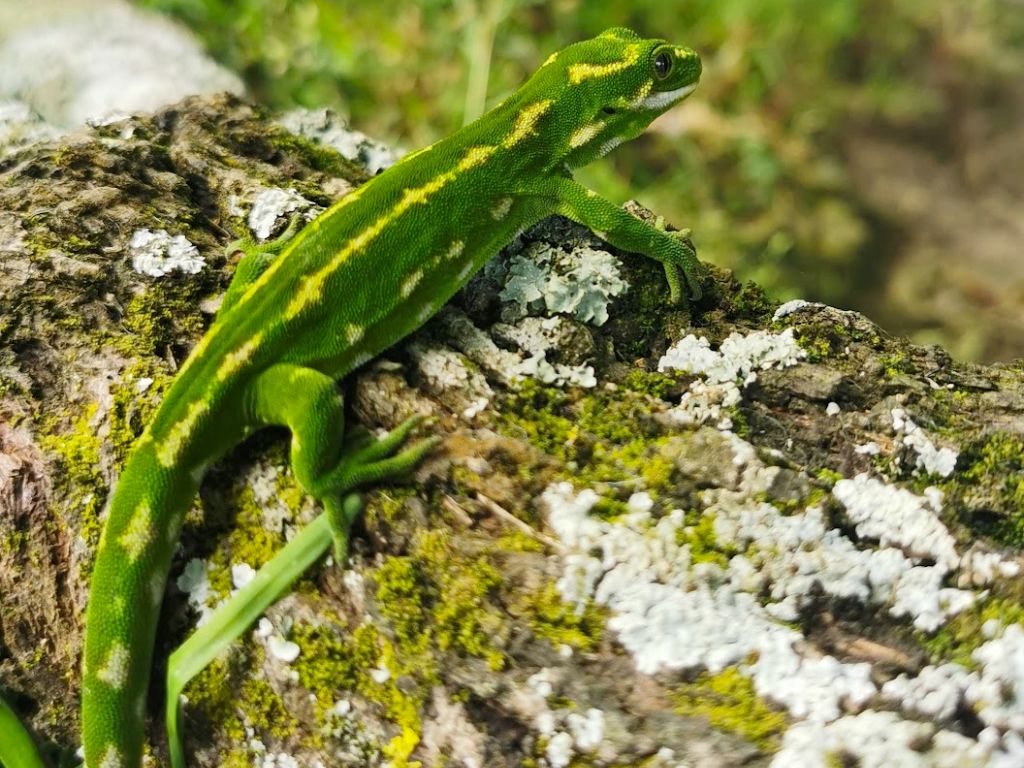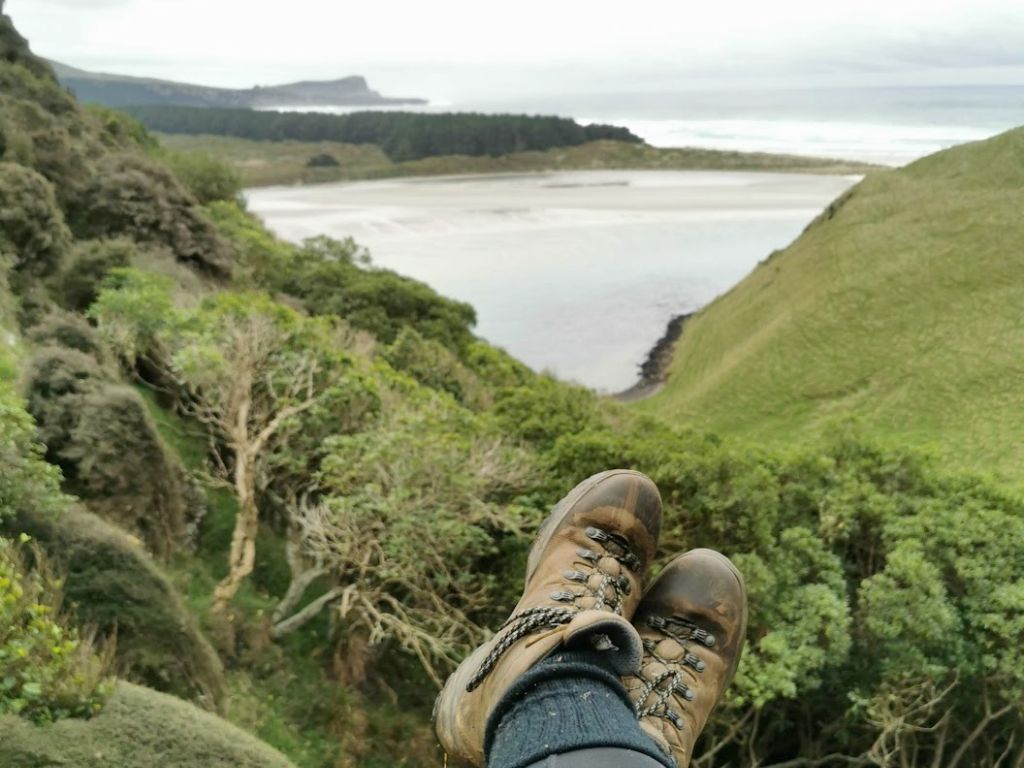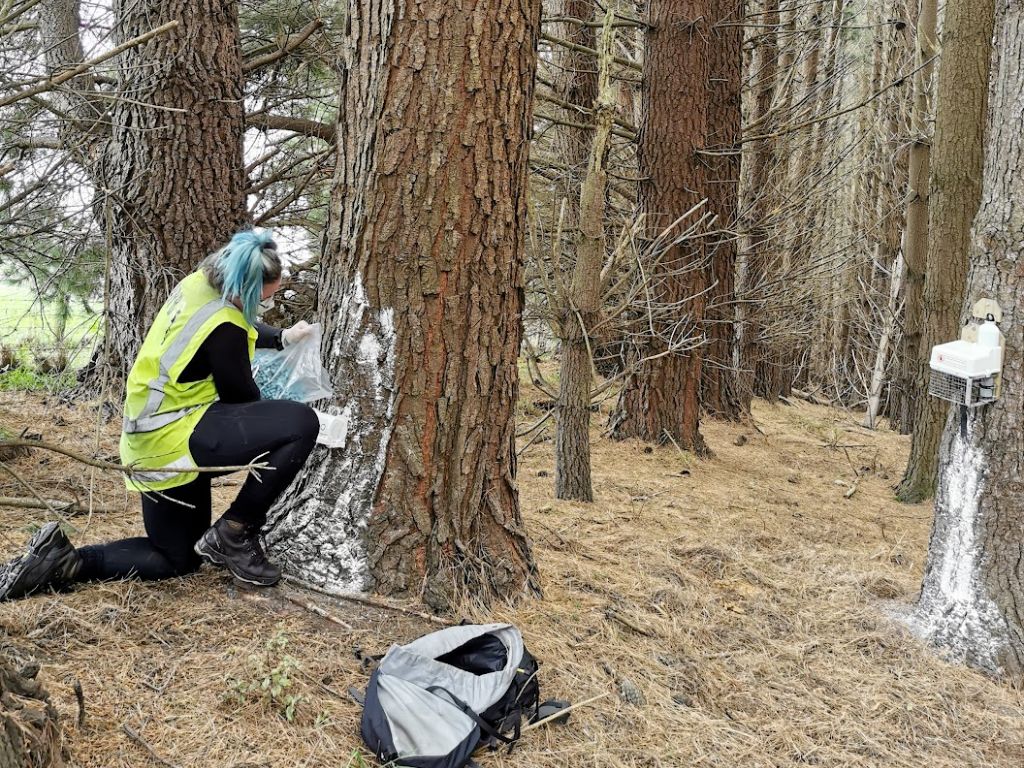Nearly one in four young adults in Aotearoa New Zealand are suffering from high levels of anxiety, fatigue and depression.

It is a staggering number, but for many young people finding your way in life has never been easy — for one thing, there can be immense pressures to have a career sorted by the time you leave school, and for Predator Free Apprentice Jenilee Hill, it just wasn’t that straightforward.
“I was stuck. I was working in retail and was unsure what to do next. Even when I started at University, I felt like an outsider,” says the Otago-based 25-year-old.
Jenilee eventually went on to study zoology, working full-time and living off-campus, which only added to the sense of isolation.
“When I graduated, I still didn’t know where to start. I had this degree and wanted to be part of conservation, but I am just not an outdoors person. I had no practical experience; I needed someone to take the risk.”
Otago Peninsula Biodiversity Group gave her that chance; as part of the Predator Free Apprentice Programme, Jenilee was welcomed into a process to provide her with the basic skills she needed to succeed.
On the right path
According to Education Counts 158,585 people in Aotearoa New Zealand participated in apprenticeship programmes in 2022. Those programmes serve a critical need, especially for learners seeking a different or less traditional course.
Jenilee explains, “It was perfect to have this bottom-up chance to build my confidence as I started to learn about things in a hands-on way.”
While apprenticeship programmes offer opportunities in various fields, from electrical to joinery, there has always been a gap for someone who loves the outdoors but needs a clear path forward into conservation.
Founded in 2020 during the depths of COVID-19 as a part of Jobs for Nature, the Predator Free Apprentice Programme aimed to pilot that pathway, and as one of the graduates, Jenilee can see an obvious benefit.

“It was all firsts for me: driving a truck for the first time, riding quad bikes, shooting a gun. Everyone I work with is so patient and helpful. I even got my firearms licence and controlled substance license. I am just so proud of myself.”
Stepping outside your comfort zone

The programme was positive for Jenilee, but it wasn’t always easy — she is outspoken about her mental health journey, “I second guess myself constantly, but being here, I have found that it’s an internal battle, that the things I am afraid of or feel like I have messed up, other people don’t judge. It’s just part of learning.”
She’s not alone; 1 in 5 adults aged 15 years and over are diagnosed with a mood and/or anxiety disorder, according to Ministry of Health figures from 2019, but a career in nature has inherently healing qualities.
This idea is backed by a 2020 study from Zealandia (PDF, 3.1MB), which found that “levels of depression, anxiety and stress were significantly lower in survey respondents who spent more time across their week in public nature spaces.”
Jenilee says, “It’s funny because I am not the hiking type, but when I go outside to work, it is so good for my brain. My fitness has improved so much. I have terrible hay fever, so I sneeze constantly, but when I get to be outside, I have such a major sense of accomplishment.”
As the Predator Free Apprentices start to move into the workforce after their two-year training is up, the Trust is reviewing its pilot. It’s clear that there is a need in this space for the next generation of predator control specialists.
Now working full-time at Otago Peninsula Biodiversity Group as a data and field technician, Jenilee agrees, “I was just so lost. I couldn’t even imagine my future, and I think many people like me are out there.

“I wouldn’t be where I am if this programme didn’t exist. I would still be working in a supermarket, which isn’t something I personally wanted to do long-term. This was the beginning of my career, and I couldn’t be more grateful.”

